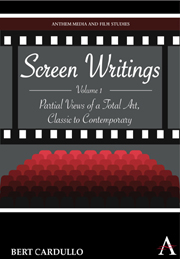Book contents
- Frontmatter
- Contents
- List of Illustrations
- Introduction: The Necessary Film
- Part I Children and the Cinema
- 1 Children of a Lesser God: The Children's Film from De Sica to Kore-eda
- 2 Death Wish, Child's Whim, Auteurist Will: Boyer and Clément's Forbidden Games Replayed
- 3 War Games: On Bahman Ghobadi's Turtles Can Fly
- Part II Literature and Adaptation
- Part III Views and Interviews
- Part IV World Enough and Time
- Bibliography of Related Criticism
- Index
- Plate section
1 - Children of a Lesser God: The Children's Film from De Sica to Kore-eda
from Part I - Children and the Cinema
Published online by Cambridge University Press: 05 March 2012
- Frontmatter
- Contents
- List of Illustrations
- Introduction: The Necessary Film
- Part I Children and the Cinema
- 1 Children of a Lesser God: The Children's Film from De Sica to Kore-eda
- 2 Death Wish, Child's Whim, Auteurist Will: Boyer and Clément's Forbidden Games Replayed
- 3 War Games: On Bahman Ghobadi's Turtles Can Fly
- Part II Literature and Adaptation
- Part III Views and Interviews
- Part IV World Enough and Time
- Bibliography of Related Criticism
- Index
- Plate section
Summary
Where children are concerned, two myths predominate on film: that of the original innocence of children, an innocence that only becomes sullied by contact with the society of grown-ups; and that of the child-as-father-to-the-man, of childhood as a prelude to the main event of adulthood. Among films of the first kind, Benôit-Levy's La maternelle (1932), Daquin's Portrait of Innocence (1941), Buñuel's Los olvidados (1951), Grede's Hugo and Josephine (1967), Ferhati's Reed Dolls (1981), and Ghobadi's Turtles Can Fly (2004) deserve special mention (possibly Kore-eda's Nobody Knows [2004], also, but more on this film later). Among films of the second kind, in the 1980s Hallström's My Life as a Dog (1985) and August's Pelle the Conqueror (1988) were almost simultaneously joined by Ouédraogo's Yaaba (1987) and Gaup's Pathfinder (1988); they were preceded by such pictures as Sucksdorff's The Great Adventure (1953) and Coutard's Hoa-Binh (1970), as well as followed by Haroun's Abouna (2002). For the record, before 1900 the Lumière brothers had made the first films about children, and soon thereafter virtually every film culture grasped the new possibilities of capturing on screen children's cuteness and mischief and pathos.
In the vein of juvenile performance – with professional child actors as well as nonprofessional ones, or “;non-actors” – no movie culture has done better than France, however. Think only, most recently, of Doillon's Ponette (1996), It All Starts Today (1999) – a film by the redoubtable Bertrand Tavernier about preschool children living amidst Zolaesque conditions in contemporary northern France – and Barratier's The Chorus (2003).
- Type
- Chapter
- Information
- Screen WritingsPartial Views of a Total Art, Classic to Contemporary, pp. 3 - 18Publisher: Anthem PressPrint publication year: 2010



